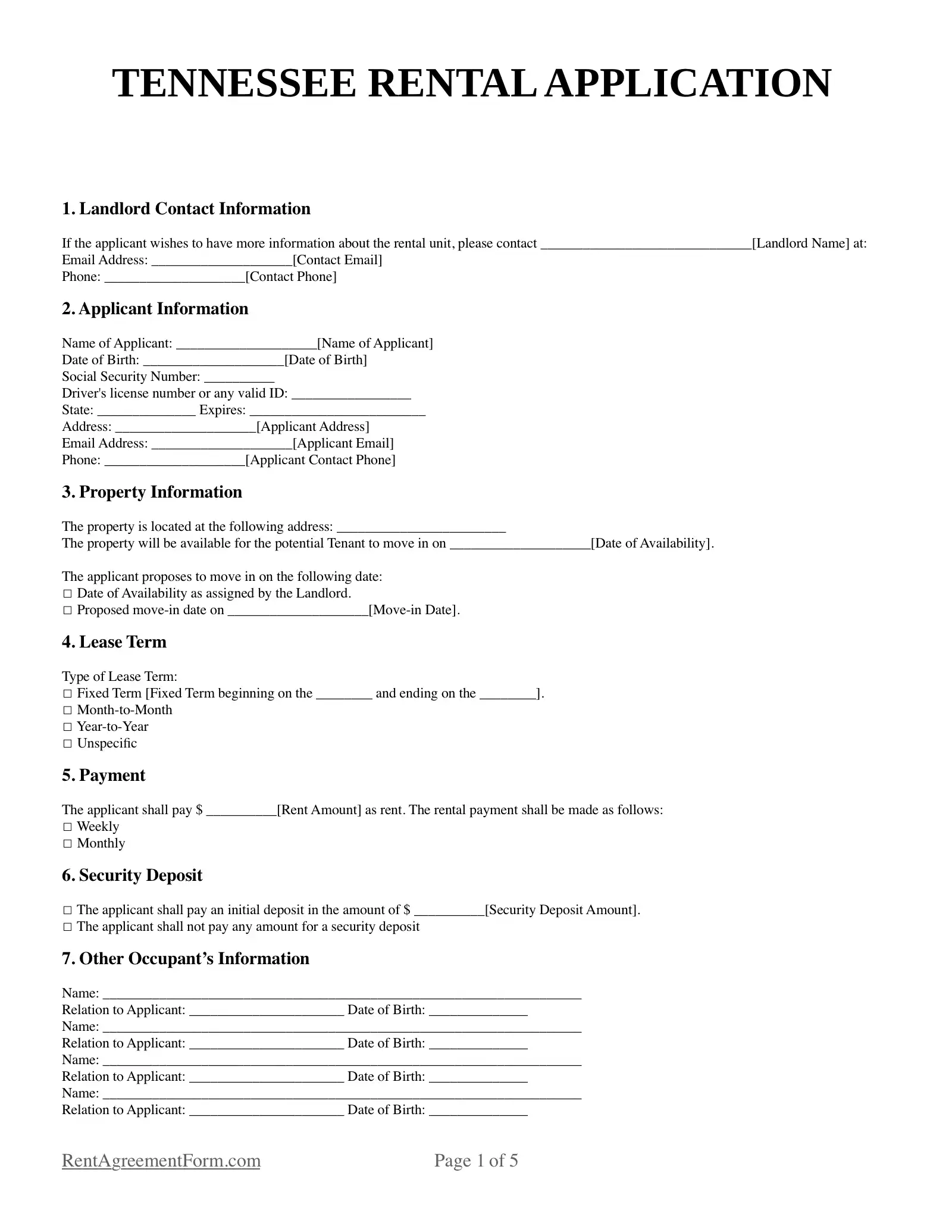Tennessee Rental Application Form
The first step in renting a property in Tennessee is to apply for tenancy. To do that, one must submit a Tennessee Rental Application Form along with its corresponding fee.
A rental application form is a document that a prospective tenant is required to accomplish to be considered for a residential tenancy. Landlords use it to screen applicants. The standard form provides a basic description of the property, including the type of residential place, size, number of bedrooms, and expected rent amount. It also contains important details about the applicant.
With the standard rental application template, spaces are provided for the applicant to fill out their personal information, such as their social security number, driver’s license number, and employment details. But the most important information, as far as the landlord is concerned, is the prospective tenant’s capacity to pay. In most cases, a pay stub is attached to the application form.
In addition, the landlord is also interested in the applicant’s tenancy and eviction history. Thus, the application form provides spaces for references.
When screening applicants, a landlord should uphold the provisions of the Federal Fair Housing Act. They cannot reject an application based on the applicant's skin color, gender, religion, familial status, disability, or nation of origin.

Rental Application Fee in Tennessee
There is no limit to the amount of application fee a Tennessee landlord can charge. However, it should be reasonable, or they will have no applicants. Also, a landlord must charge all applicants a uniform fee.
This fee is non-refundable as it covers the background check on the applicant. A third party will look into their creditworthiness and other background information. The whole process costs money.
It is important for applicants to know that when they sign the rental application form, they are essentially consenting to the screening process.
Tennessee Rental Application Security Deposits
No law in Tennessee sets a limit to how much a landlord can charge in security deposits. What is clear is that the landlord should deposit the amount in a separate account, and the tenant should be informed about its details, including the account number.
Both landlord and tenant will decide on a schedule for the walk-through at the end of the tenancy period. The goal is to determine whether there is damage to the apartment. If so, the cost of repairing will be deducted from the security deposit, and the balance should be returned to the tenant within 30 days (TN Code § 66-28-301 (2021)).